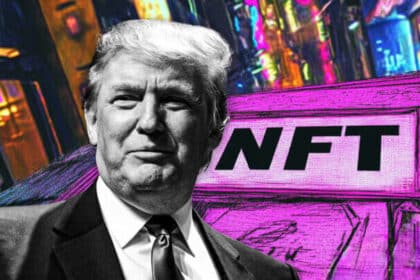Senator Lummis’s US Bitcoin Act 2024 proposes a strategic Bitcoin reserve to transform American finance, sparking debate over integrating digital assets into national strategy.
In a landmark proposal that could transform American finance, U.S. Senator Cynthia Lummis has introduced the “Boosting Innovation, Technology, and Competitiveness through Optimized Investment Nationwide (BITCOIN) Act.” This legislative initiative aims to create a strategic Bitcoin reserve for the United States, positioning Bitcoin as a crucial store of value on the nation’s balance sheet. Announced at the Bitcoin Conference in Nashville, Tennessee, the US Bitcoin Act seeks to strengthen America’s economic position through the integration of Bitcoin.
Senator Lummis’s Vision for Bitcoin Integration
Senator Lummis envisions the US Bitcoin Act as a way to establish the United States as a frontrunner in financial innovation. The proposal suggests the acquisition of 1 million bitcoins to counteract inflation and national debt, harnessing the power of digital currency. As a Republican from Wyoming and a long-time supporter of cryptocurrency, Lummis views this as a historic opportunity for the country. “This is our Louisiana Purchase moment that will help us reach the next financial frontier,” Lummis remarked, highlighting her belief in Bitcoin’s potential to transform the financial landscape. The US Bitcoin Act aims to create a strategic reserve to enhance financial stability and ensure America leads in global financial innovation.

Key Components of the Bitcoin Reserve Proposal
Central to the US Bitcoin Act is the plan to develop a decentralized network of secure bitcoin vaults, managed by the United States Department of Treasury. These vaults will feature strong physical and cybersecurity measures to safeguard the nation’s bitcoin assets. The goal is to establish a transparent system for managing bitcoin reserves without limiting the financial autonomy of individual bitcoin holders. The legislation proposes purchasing 1 million bitcoins, roughly 5% of the total bitcoin supply, mirroring the scale of current U.S. gold reserves and signaling a significant shift towards digital assets in national financial strategy.
Potential Consequences of the Bitcoin Reserve Initiative
The introduction of the US Bitcoin Act has sparked widespread debate among political and financial circles. Proponents argue that a strategic bitcoin reserve could bolster the United States’ financial security and resilience, particularly in the face of challenges like inflation and national debt. By diversifying the nation’s reserves to include digital assets, the act aims to prepare the country for future economic uncertainties.
However, critics caution about the risks of investing in a volatile and relatively new asset class, pointing out that bitcoin’s value can fluctuate dramatically, potentially impacting national financial stability. Despite these concerns, Senator Lummis remains confident, emphasizing that the act includes safeguards for federal investments and individual bitcoin holders’ rights.
Global Significance of the Bitcoin Reserve Proposal
The US Bitcoin Act emerges as global governments are examining the potential of digital currencies. As the first developed country to contemplate adopting bitcoin as a strategic reserve, the United States would set a precedent for others. This move could reshape global perceptions of digital assets, spurring innovation and adoption in the financial sector. Senator Lummis’s proposal aligns with her commitment to financial innovation and the advancement of cryptocurrency in the economy. By introducing the US Bitcoin Act, she seeks to create a regulatory environment that fosters technological progress while protecting American interests.

In summary, the introduction of the US Bitcoin Act is a significant step toward embracing the future of finance. While still in its early stages, the proposal has sparked lively debate about the role of digital currencies in modern economies. Whether the US Bitcoin Act will become law is uncertain, but it marks a pivotal moment in the evolution of the global financial system. As discussions continue, the United States is at the center of attention, navigating this new territory and determining the future of digital assets in the financial world.




























